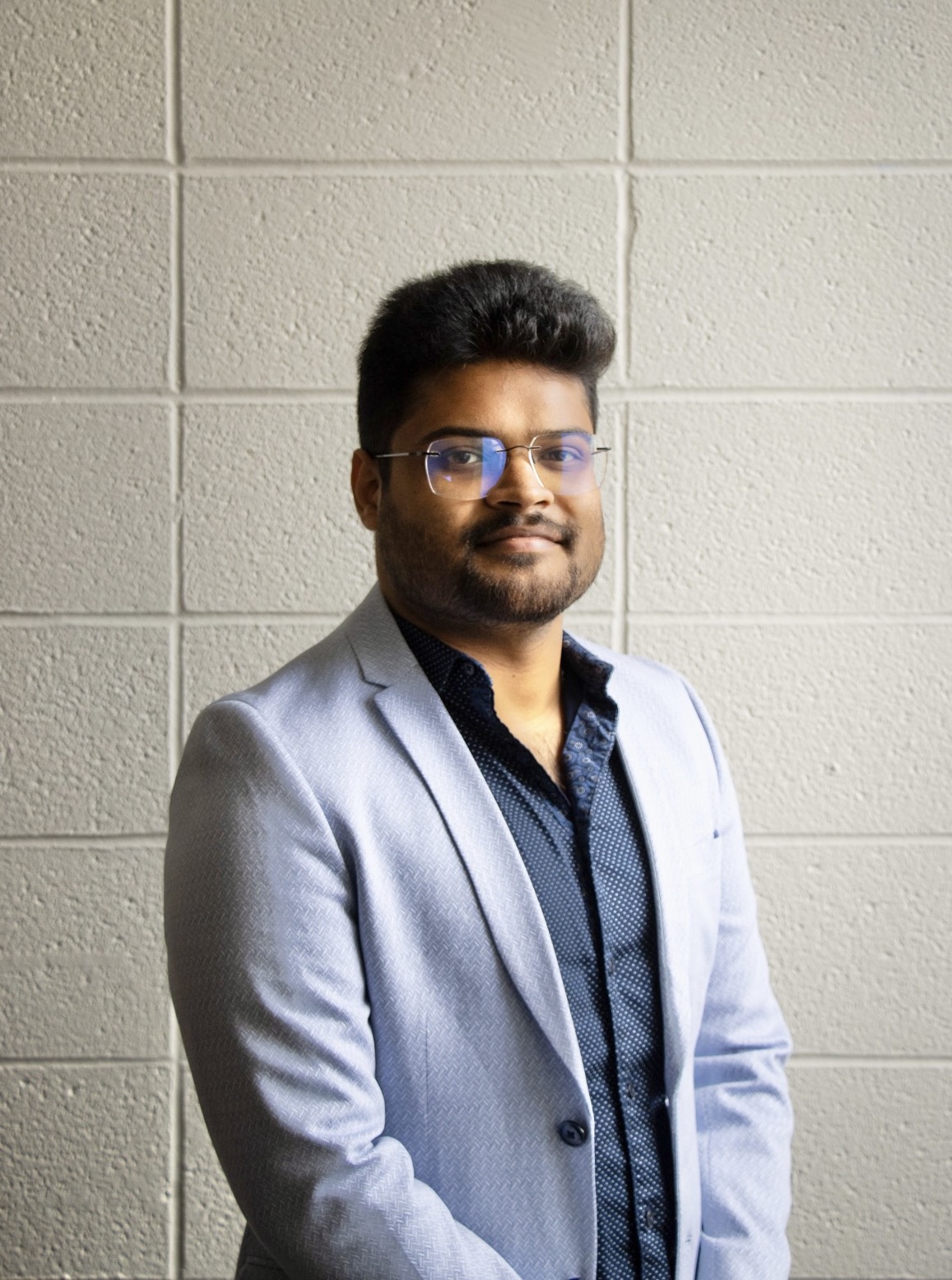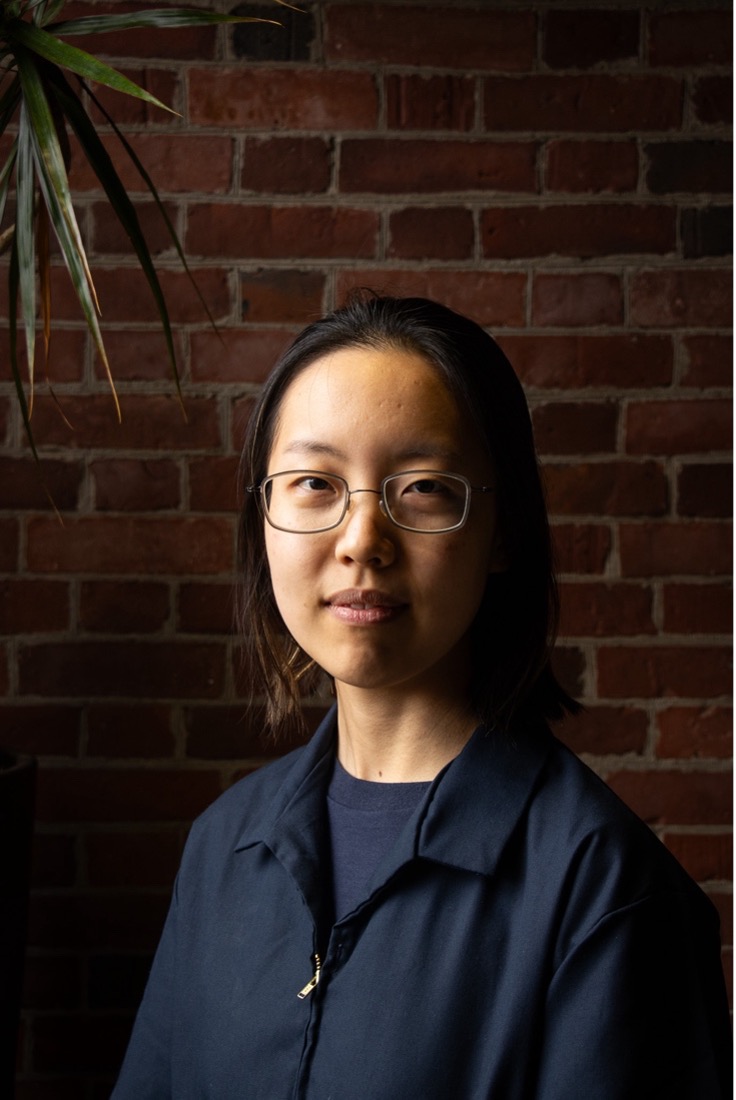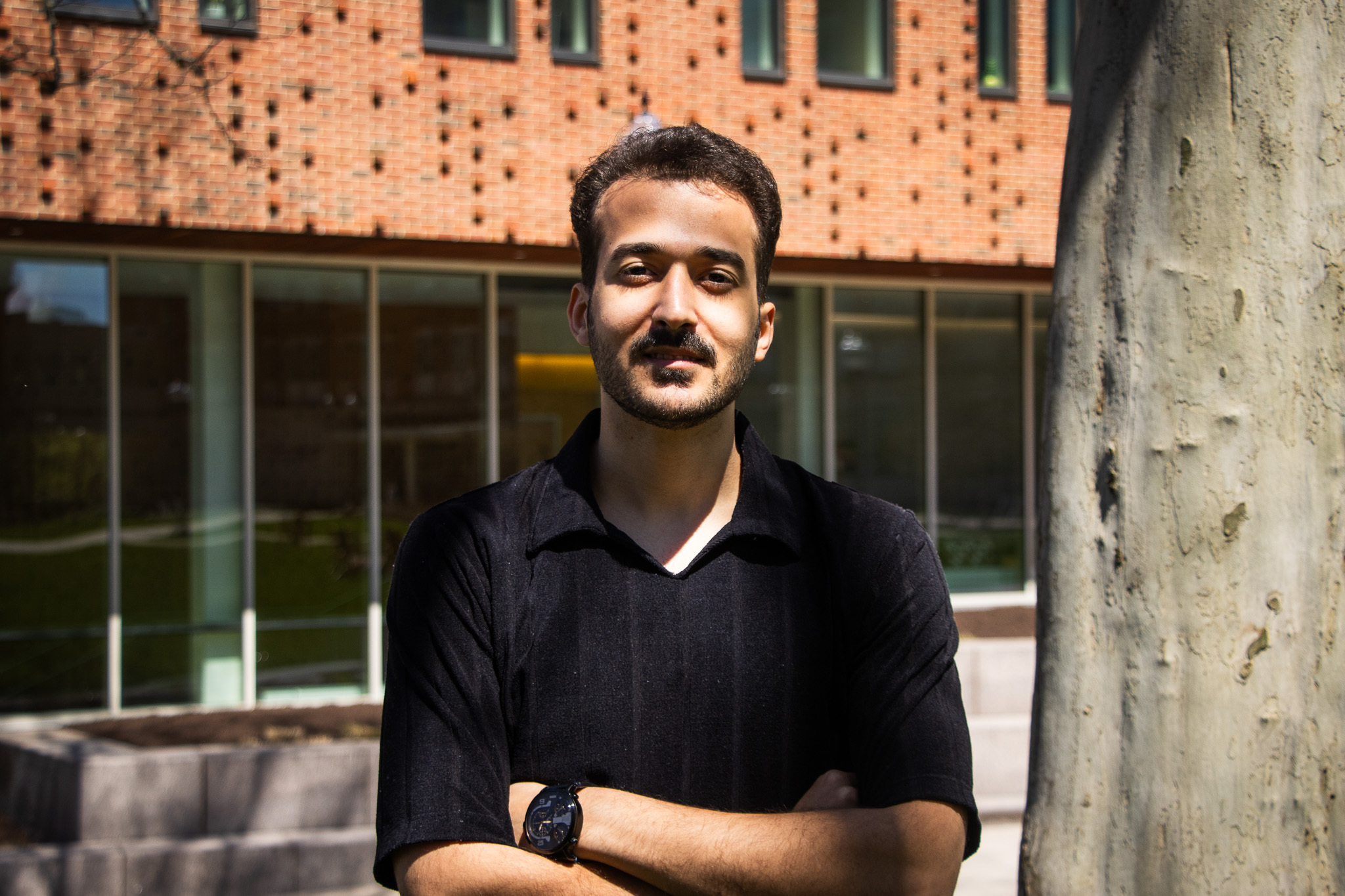Professor Hesam Askari
 Hesam Askari received his PhD degree in Mechanical Engineering from Washington State University in 2014, learning from the expertise of of Professor Hussein Zbib, a world-famous scientist for his contributions to the field of mechanics of materials and plasticity. He moved on to a post-doctoral position at the Massachusetts Institute of Technology in Professor Ken Kamrin's research group, an applied mathematician with genius take on how to approach a broad range of problems in complex flows of solids and fluids, where he studied mechanics of granular materials. He joined the University of Rochester in 2016 as a teaching faculty and started his research tenure in the spring of 2018.
Hesam Askari received his PhD degree in Mechanical Engineering from Washington State University in 2014, learning from the expertise of of Professor Hussein Zbib, a world-famous scientist for his contributions to the field of mechanics of materials and plasticity. He moved on to a post-doctoral position at the Massachusetts Institute of Technology in Professor Ken Kamrin's research group, an applied mathematician with genius take on how to approach a broad range of problems in complex flows of solids and fluids, where he studied mechanics of granular materials. He joined the University of Rochester in 2016 as a teaching faculty and started his research tenure in the spring of 2018.
His research focuses on how, on a fundamental level, geometry, topology, length scales and deformation mechanisms can be collectively integrated to promote or diminish certain properties of a matter. Application of such knowledge can lead to better utilization of intrinsic properties of materials or can pave path to design new materials with enhanced properties. His research branches in two main tracks: (i) Integrated multi-scale modeling of materials and (ii) Mechanics of locomotion in complex media and soft materials. His research method is mainly theoretical development and numerical implementation of predictive mathematical models validated by experiments.
The Team at MAL
Interested in joining our team? Check current openings or contact Professor Askari.

Aditya Dey
Research interests: Quantum Materials, First-principles calculations, Molecular Dynamics, Mechanical behavior at atomic-scale.
Aditya joined our lab in August 2020, commencing his Ph.D. program in Mechanical Engineering. His research primarily focuses on developing computational frameworks tailored to study the mechanical behavior of heterogeneous 2D materials at the atomic scale (micro-nano scale). He utilizes techniques such as atomistic modeling, molecular dynamics simulations, and first principles-based analyses to explore a variety of complex 2D material systems. The range of computational tools for his work includes LAMMPS, QuantumATK, Quantum Espresso, and extensive programming in MATLAB and Python. His research applications include improving the opto-electronic performances of quantum materials-based devices by mechanical deformation techniques. Prior to joining the University of Rochester, he completed his master's degree at the Indian Institute of Technology (IIT) Patna, following his undergraduate studies in Kolkata, India.
Follow Aditya on Linkedin and Google Scholar.

Seungju (Jamie) Yeo
Research interests: Dynamic Resistive Force Theory, Resistive Force Theory, Cohesive Granular Materials.
Seungju began her PhD program in August 2022. Originally from Seoul, South Korea, she is fascinated by the process of defining problems and the variety of methodologies to solve them. Among these various methodologies, numerical modeling has been her favorite so far.
Throughout her academics in Mechanical Engineering at the University of Rochester, she learned the value of Computer Aided Designs and Finite Element Models as a problem-solving method, such as recreating a historic building under an earthquake to prescribe the weak point or designing a test equipment apparatus before manufacturing so that it is structurally stable and light-weighted.
Her interest in problem-solving expanded as she started to define problems in the early years of graduate studies at the University of Rochester. To assess the effectiveness of the Design of Experiment method Taguchi developed, she defined a problem of crack propagation distance on an aluminum plate and solved it using ABAQUS, which indicated the condition for the method to be the most effective.
Her current interest lies in granular material. She is studying their effect on the impact projectile and intrusive motion using LAMMPS, a molecular dynamics simulation software. She works at a machine shop as a safety instructor, making pens.
Follow Seungju on Linkedin and Google Scholar.

Pouria Hajizadeh
Research interests: Statistical Analyses, granular flow.
Pouria joined our lab as a Ph.D. student in Fall 2023. He completed his master's degree in Khajeh Nasir Toosi University of Technology, Iran. Throughout his master's, he developed statistical models for predicting the failure behavior of advanced ceramics and composite materials. He also has some skills in Experimental Mechanics, Digitial Image Correlation, and Finite Element Analysis.
His current research is studying the fundamentals of granular behavior and soft media using theory of granular materials. Pouria is developing statistical and machine learning models for flow behavior of granular materials and exploring statistical nature of grain behavior. He utilizes different computational software such as LAMMPS, and programming languages such as Matlab and Python to address this research.
Follow Pouria on Linkedin and Google Scholar.
Former team members
Shoieb A. Chowdhuri (graduated with Ph.D in May 2023, moved to Equinix)
 Shoieb Chowdhury’s research interest primarily focuses on understanding at fundamental level the mechanics and mechanical properties of material. To that purpose his research spans different length scales starting from macro to atomistic scale for exploring material behavior. Some of the frequently used methods include continuum mechanics, finite element, molecular dynamics, and computational mechanics. Currently he works on modeling multi-layered 2D materials and how their properties can be altered using mechanical strain. Before joining University of Rochester in fall 2017, he worked on flexible polymer nano-composite materials using experimental and numerical methods during his master’s degree at the University of Oklahoma.
Shoieb Chowdhury’s research interest primarily focuses on understanding at fundamental level the mechanics and mechanical properties of material. To that purpose his research spans different length scales starting from macro to atomistic scale for exploring material behavior. Some of the frequently used methods include continuum mechanics, finite element, molecular dynamics, and computational mechanics. Currently he works on modeling multi-layered 2D materials and how their properties can be altered using mechanical strain. Before joining University of Rochester in fall 2017, he worked on flexible polymer nano-composite materials using experimental and numerical methods during his master’s degree at the University of Oklahoma.
Follow Shoieb on Linkedin and Google Scholar.
Peter M. Miklavcic (graduated with Ph.D in May 2023, moved to Naval Undersea Warfare Center)

Originally from Haslett, Michigan, Peter started his PhD program in the fall of 2018 after completing his bachelor’s in Mechanical Engineering at the University of Rochester. His primary research interests are the computational and experimental study of vibration propelled locomotive systems. The computational avenues of this research have seen use of Abaqus Explicit software, Siemens NX 12.0 software, and extensive MATLAB programming. Experimental procedures in this study aim to standardize a reliable experimental setup that can be used to corroborate results produced from computational work.
In addition to his research in locomotion, Peter has also spent the last two summers at Oak Ridge National Lab in Tennessee, researching the theoretical development and physical construction of an electro-thermal energy storage system with applications for grid-scale renewable energy storage.
Follow Peter on Linkedin and Google Scholar.
